11 Games Ruined By Microtransactions
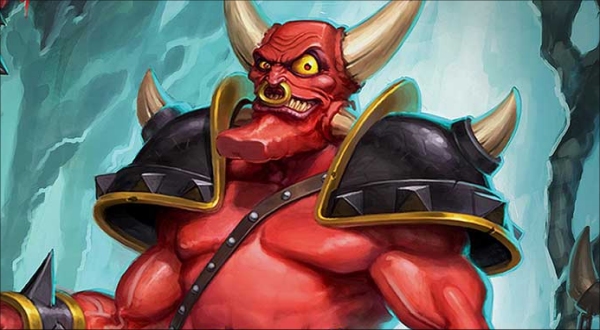
Microtransactions... they were once considered as a great way to extend a game's replay value beyond the initial purchase. Gamers were excited about extra story content and additional multiplayer accessories. However, some games took this concept and turned it into pure evil.
Just to preface this list: not all microtransactions are bad. There are some games that add them in properly and it's balanced well. There are plenty of games like Heroes of the Storm, Dota 2, League of Legends and Smite that do the model right. Then there are the games on this list... games that had publishers where they should have known where to draw the line but didn't. Henceforth, here are 11 games ruined by microtransactions.
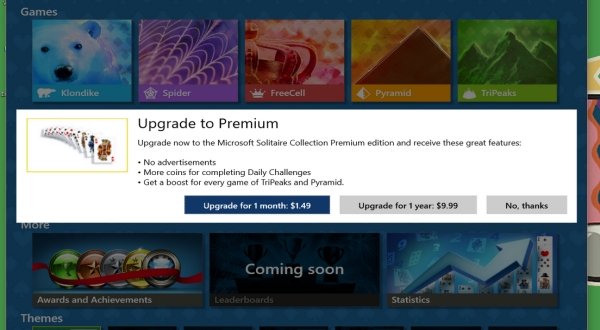
Solitaire On Windows 10
Free-to-play seemed like such a great concept nearly a decade ago when it was really taking off in the Korean MMO scene. Many gamers though “Oh wow, free-to-play means I get to enjoy awesome games without paying a dime!” That's how it works in concept, but in theory you can slap a big fat “nope” on it.
A perfect example of a free-to-play game gone evil is Microsoft's classic Solitaire for Windows 10 – if you don't want to watch 30 second ads before or during your gameplay, you have to pony up $1.49 a month or $10 a year. You pay to own it and your Windows 8 subscription for Solitaire does not carry over, according to a report by Mashable. This is one big fat “screw you!” from Microsoft to fans, leaving a lot of people feeling as if Solitaire on Windows 10 is ruined.
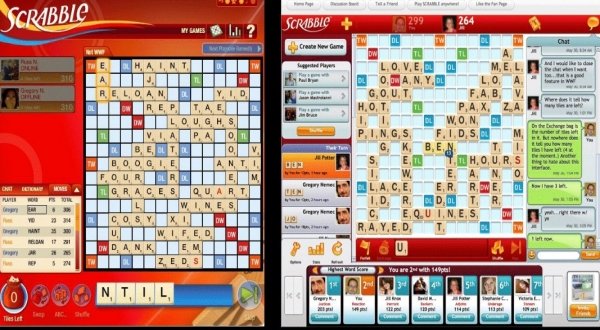
Scrabble On Facebook
How on Earth do you funk up Scrabble? Well, apparently both Electronic Arts and Hasbro managed to do so, even though their target audience for the game were senior citizens! I wouldn't believe this story was true had I not been contacted by disgruntled older gamers who just wanted to enjoy Scrabble on Facebook. “Bring back the old board!” they pleaded. “What can we do to get rid of the ads?! We just want to play?!”
Your Daily Blend of Entertainment News
It was sad really, because the game launched and became quite popular with the older gaming crowd. However, after EA witnessed the apps rapid growth and made some startling (monetary) changes to the game board, propped up the mobile version with ads that obscured the gameplay and basically turned it into a microtransaction fest. They managed to drive away a lot of their core audience with this move.
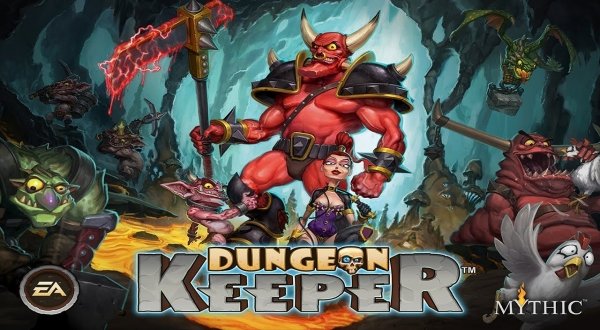
Dungeon Keeper Mobile
A game with ads and in-app microtransactions so vile that even the U.K's advertising regulation body had to step in and say “Enough is enough!” Heck, even the original creator of the Dungeon Keeper series, Peter Molygneux, was none too impressed with EA's ad-laden reinterpretation of the classic dungeon expansion simulation.
The title was a bit different from other free-to-play games insofar that instead of buying more gold to be more competitive, you had to buy cash shop items to lower the timer that restricted you from expanding your dungeon. Essentially, you were paying to play without gameplay-prohibitive time barriers. This tactic has been used in other mobile apps but none so vile as that of Dungeon Keeper. The reviews around the web reflect the game's poor handling of its microtransactions.
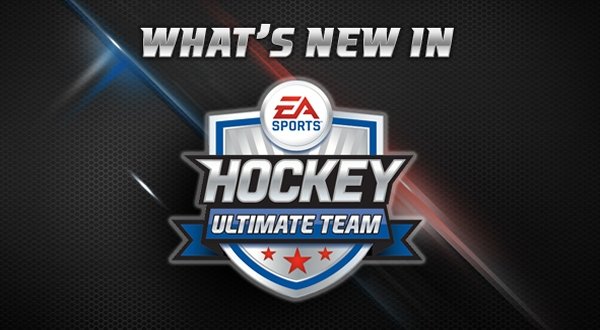
NHL 12 And 13
Oh look, another Electronic Arts title... how surprising. The NHL series was never quite as big as the NFL or FIFA series under the EA Sports label, but they still managed to siphon a good deal of revenue out of the annual hockey series. How? With the HUT microtransaction packs.
Apparently there was a bug that takes players money when they purchase the packs but the packs aren't delivered to the account. If you're trying to make the ultimate team you have to contend with these microtransaction purchases that may not even work right. EA has been notified multiple times about this but never offered any public statements about fixing the problem.
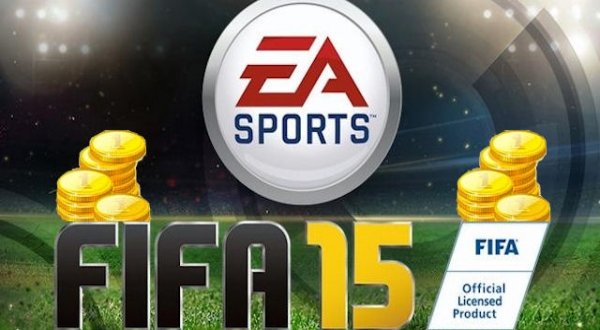
FIFA 14 & 15
You know microtransactions are bad in a game when the publisher has to step in and curtail how players can buy and trade goods in the title because gray market sellers step in to undercut the publisher with cash shop bundles via bots. If that sounds like one big hot mess that's because it was, is and will continue to be so long as the microtransactions are handled in the way that they are for the newer FIFA titles.
The real victims in all of this are parents who don't know that if they have a credit card attached to Xbox Live or PSN (which is usually not uncommon) kids can easily make purchases on those cards through in-game app purchases. This same problem that EA got nailed for with Dungeon Keeper has also become a pervasive issue in FIFA games with kids running up crazy bills not thinking that buying in-game cash shop coins is actually costing their parents real money. In one case it was a $4,500 bill.
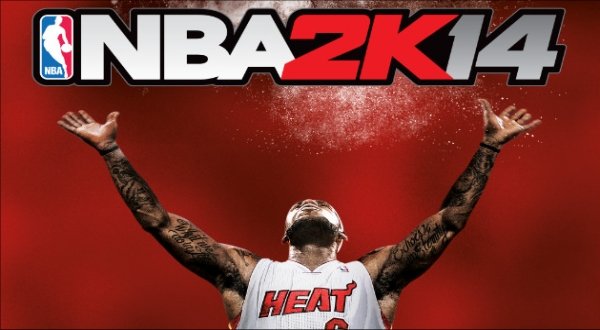
NBA 2K14
I don't know what 2K Sports was thinking but the microtransactions and always-on DRM in NBA 2K14 landed them in plenty of hot water with gamers who had just come off a summer of dealing with Microsoft trying to force-feed them an entire console centered around DRM. What made NBA 2K14 so bad was the fact that you couldn't even do basic things like trade players or make management decisions without buying into the game's microtransactions for certain modes.
It was a farce... a complete farce. But at the time this was slightly overshadowed with the fact that Gran Turismo 6 and Forza Motorsport 5 also had some rather unappealing microtransactions as well, but no where near as bad or as restrictive as NBA 2K14's. What's worse is that the game cost $60 to boot!
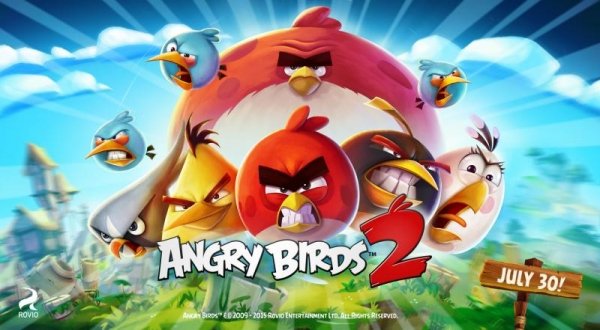
Angry Birds 2
Pay walls, timer walls, in-game ads and microtransactions. That's what you get in Angry Birds 2. There was a study by a marketing firm that found that gamers hate disruptive in-game ads. In fact, ads that play and disrupt the game were the most hated forms of advertising in a game. So why include it? Well, because you can pay to make them go away.
The interesting thing about Angry Birds 2 is that if one method fails it has another to compensate. As noted in an article on Forbes, you can buy gems to increase your in-game currency or you can pay money to buy extra continues. Free-to-play games usually need microtransactions to survive but when they become so invasive that the game is no longer any fun without constantly paying out real money every few minutes then it's nothing short of a failure as far as entertainment and historical value goes.
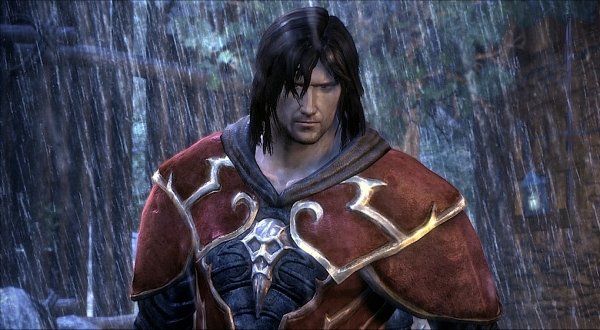
Castlevania: Lords of Shadow
This is probably one of the lesser cases of a microtransaction ruining the game but it still makes the cut because without the DLC there's a lot of backstory and character development that takes place in Castlevania: Lords of Shadow that gets left out if you didn't purchase the extended story dubbed “Resurrection”.
The DLC contains a final boss and some extra missions for players to complete. It's sometimes considered as being as rotten as EA cutting out From Ashes for Mass Effect 3, given that you can definitely complete and enjoy the game without it but if you're a diehard fan who wants to understand the full story leading up to Lords of Shadow 2, you'll likely need the DLC.
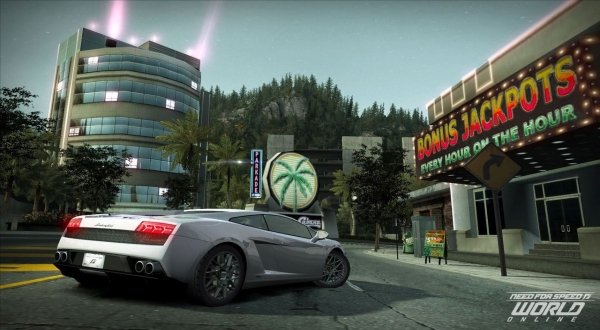
Need For Speed Online
This was an ambitious concept that saw EA and Black Box attempting to combine a lot of the previous Need For Speed titles into one massive, free-to-play game. In some ways... it worked and it worked well. Except for the fact that the microtransactions eventually ruined the game.
It started small with customization packs, decals and cosmetics – things that didn't affect the game that much. However, EA started aggressively pushing for microtransactions for their booster packs, which were card packs that contained things like new car parts, in-game turbo boosts or other race bonuses, like cooldown cards so you could quickly use bonus cards again. Essentially players could buy turbo boosts and boost their way to the finish line. Compounded with the invasion of hackers, the only way to win any of the game's races devolved into hacking or paying real money for cooldown cards and turbo boosts. It was disgusting. Few tears were shed when the game was announced to be closing down.
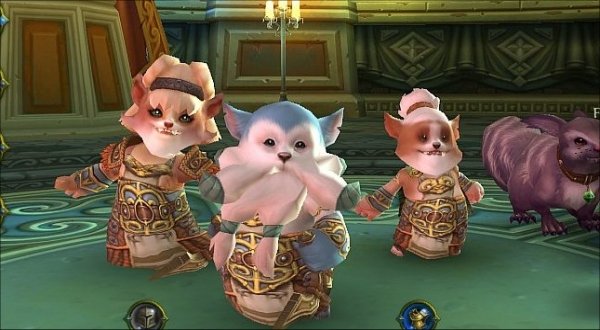
Allods Online
One of the many games that was pegged as being a WoW-killer. Astrum Nival's Allods Online was a Russian-made MMO on a budget of about $10 million. It looked great and had awesome gameplay. It was also free-to-play. As the game was really building up momentum and gaining a strong audience, the publisher at the time, gPotato, decided to pull a fast one on the gaming audience and did so at the cost of the game's enjoyment.
After a major update they included an all new way to gain experience and deal damage during PvP. You needed astral essence. Without this essence you wouldn't get a buff, and without the buff you couldn't deal damage or gain exp. You had to pay for the buff otherwise you couldn't really do anything at all. They also focused PvP around cash shop runes, and then later focused crafting around cash shop mats. Essentially the whole thing was a cash grab and it killed off its once rapidly-growing community pretty quickly.
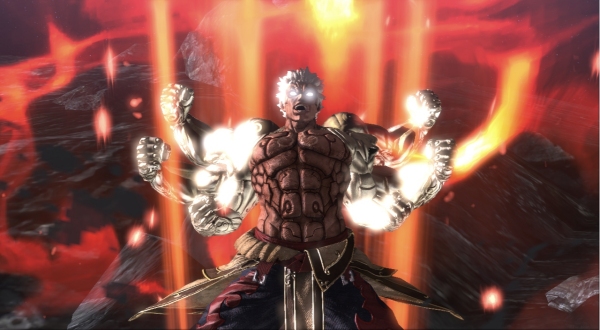
Asura's Wrath
An ending? Seriously? This here was the epitome of what people talk about when they say “don't let microtransactions get out of hand!” An entire ending locked behind a paywall. This literally used to be a joke back in the days when DLC was just getting started and microtransactions were becoming annoying and somewhat fairly pervasive. People would say “lol, stop whining... at least they didn't make you pay for the ending”. Capcom made you pay for the ending in Asura's Wrath. $6.99 to be exact.
This isn't to say that the game was bad; oh far from it. Asura's Wrath is a rare beaut and a real gem. It's like the ultimate anime game come to life. That's what made the fact that you had to pay separately for the true ending such a stab to the heart and a kick to the dick. There's always going to be one pure example of how not to do microtransactions, and throughout the annals of video game history, Asura's Wrath's true ending will be the example that stands head and shoulders above the rest.
Staff Writer at CinemaBlend.

